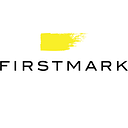What was your first management role? What did you learn from it?
My first real management role was in a general manager capacity at Chegg: owning a P&L balance sheet, managing direct reports, and indirectly driving the work of dozens for the company’s main business line of college textbook e-commerce. Through trial and error, and great coaching, I learned the importance of hiring the right people, the need to balance autonomy with management, and the principles to lead a function I’d never performed myself.
Early in your career, before you assumed leadership roles, what was one quality you appreciated in a great manager?
I’ve always been grateful to managers who proactively invested in my development, in that they provided direction, coaching, and opportunities. I have so much to thank those managers for, and I’ve also kept them as mentors and friends over time.
Can you tell the story of a moment that changed your approach to management forever?
As a fresh-out-of-school McKinsey management consultant, I remember poring over topics for dozens of hours, turning over every document, interview, observation in pursuit of the project’s recommendations, generally on very narrow topics like the number of beds per hospital in Texas or gross margin per screwdriver. On very narrow topics, I became the team’s expert. And yet, in important meetings when questions would come up and I was the best-equipped person to answer, I was still too intimidated to speak as the most junior member of the team.
After several such frustrating meetings, a new manager asked my opinion in an important review, and I provided the magical answer that moved the project forward. I remember feeling so grateful! From this experience, I learned to solicit and lean on the expertise of individuals, even those in junior roles, to get to the best answer and help everyone feel like a valued part of the team.
What are the most important daily or weekly habits that you’ve developed as a leader?
Communicate, communicate, communicate. Up, sideways, and down. Over and over again. Rarely can you communicate something important too many times. I ritualize and operationalize communication to make sure we’re all always moving towards the same north star.
What framework do you use for your one-on-one meetings?
I use four key questions:
- What do you need from me?
- What do I need from you?
- What follow-ups do we have?
- What decisions can we make today?
How do you handle delegation? What and when do you choose to delegate and how’d you become comfortable with it?
I delegate to both get leverage for myself and build leadership and confidence in others. For myself, the less I need to know deeply or the less my particular skill set will solve the problem, the more likely I am to delegate. For others, I delegate proportionally to trust, and so as a person builds trust, the more I can delegate to that individual. Ultimately if I am accountable, I will always need to balance delegation with tracking and pressure testing to make sure we get to the right result.
What advice would you give to a first-time manager about giving effective feedback?
It’s so important for managers to learn how to deliver feedback so that the recipient is ready to receive your points. I recommend Difficult Conversations by Stone, Patton, and Heen.
For example, focus on observed behaviors from others and how they make you feel, without assuming intent.
More broadly, I also recommend setting clear expectations for a role, so that future feedback conversations can tie back to a clear, shared definition of success.
What’s one unique hiring tip you’d share with a first-time manager?
Use competency-based hiring to make sure you’re attracting and evaluating candidates for the role you actually need — this approach will reduce your mis-hire rate greatly. I recommend the book Who by Smart and Street.
Have you worked with a coach, and if so, what was the biggest lesson you learned?
I was lucky to work with a great coach early in my career. One critical lesson I pass on to my direct reports and mentees is to invest in understanding what feeds your heart daily (through an assessment such as StrengthsFinder) and what success looks like in 3–5 years. It’s important to track both needs to make sure you’re moving authentically in the right direction.
What’s one thing you are working on now?
Scaling creativity throughout my organization in a way that also drives outcomes.
